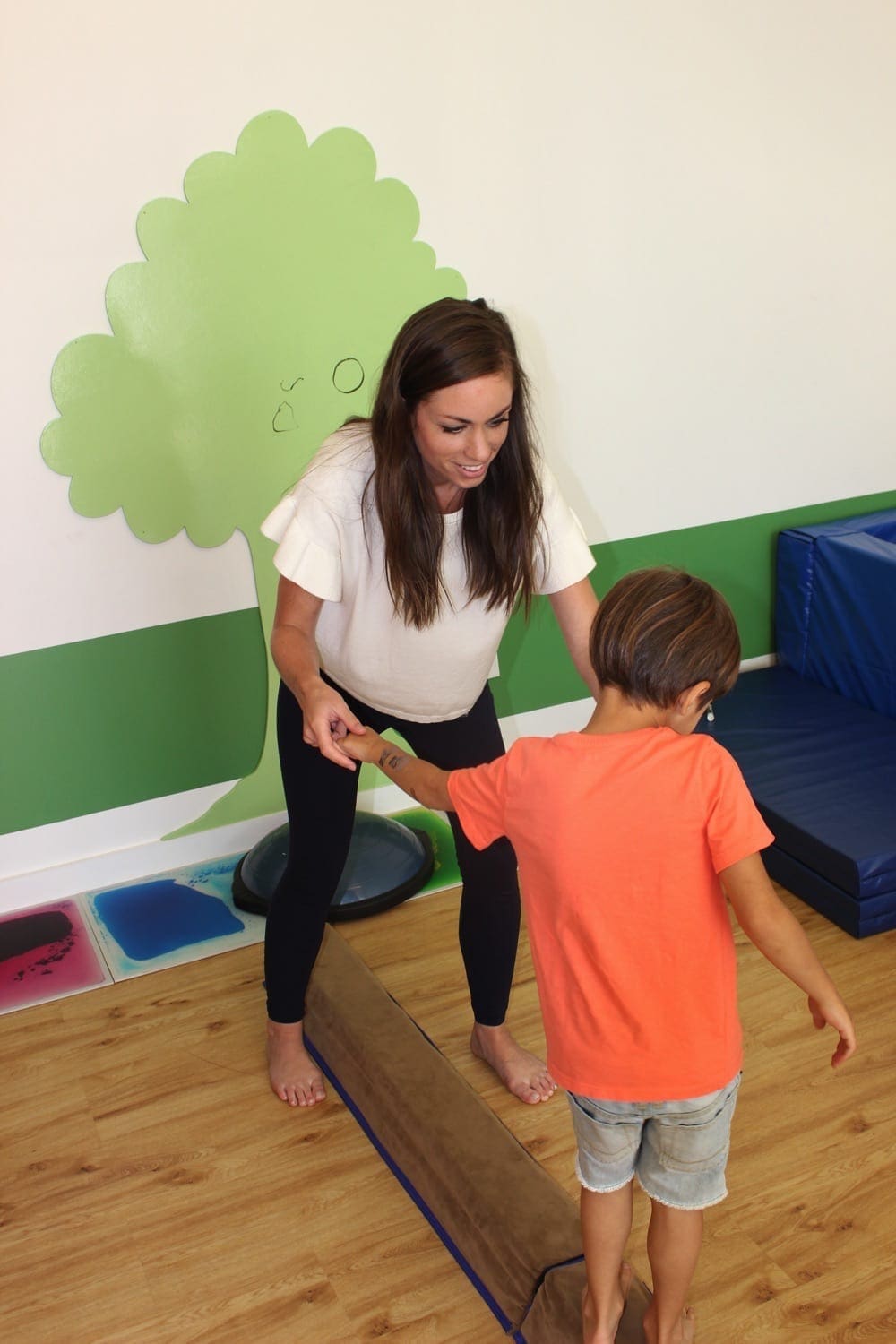Gross Motor
In-home & Clinic-based Occupational Therapy
What are gross motor skills?
Gross motor skills involve use of the large muscles of the body to perform whole-body movements in a coordinated manner. Execution of coordinated gross motor movements frequently requires stabilization of the trunk through strong core and postural muscles.
Gross motor skills are involved in functional skills such as maintaining upright posture while seated at a desk, sustaining endurance throughout a school day, and performing self-care tasks independently. Additionally, gross motor skills are involved in total body movements such as jumping jacks, walking across a balance beam, and catching a ball.
So, why is this important?
Gross motor skills are important for a variety of reasons. First, the ability to make coordinated gross motor movements will enable a child to more actively and successfully interact with his or her environment. Developing this skill area can aid in building his or her confidence and facilitate participation in age appropriate activities with peers (e.g., playground play, sports).
Next, the foundational gross motor skills of strength and stability are important because, as the OT saying goes, “Proximal stability promotes distal mobility.” When we strengthen the larger muscles of the body, we are providing a stable base from which the smaller muscles of the body are able to perform coordinated, refined movements. Additionally, when our postural muscles are strong, we are able to sustain an upright seated position for participation in the classroom and at the dinner table.
Lastly, gross motor skills are crucial for independence with daily living tasks. For example, in order to get dressed, a child must balance on one foot to put pants on.
What are some signs of challenges in this area?
Signs that a child may be having difficulty in this area include the following:
- Avoidance of or disinterest in physical tasks
- Silly behaviors during a task that is physically challenging
- Rushing through physically challenging tasks to mask difficulty
- Telling others how to do the physical task without performing it themselves
- Slouching or leaning during seated tasks
- Need to put in more effort than their peers to complete a physical task
How can OT help?
Occupational therapists can work with children and their families to equip each child with the gross motor skills necessary for successful participation in his or her environment. Gross motor skills can be developed through fun, play-based interventions such as obstacle courses, games, and animal walks. Specific skill areas that may be addressed in therapy include core strength and stability, coordinated use of both sides of the body, and balance.

Innovative Care Plans
Our team of therapists creates personalized care plans that target individual occupational therapy goals and incorporate every child’s unique learning style.
Multiple Therapeutic Settings
Chicago Occupational Therapy provides in-home and clinic-based therapy, as well as services at CST Academy, the practice’s therapeutic preschool-style program.
FREE Information Packet
Contact our office to request free information about Chicago Occupational Therapy including significant details about our program, team members, and more.
